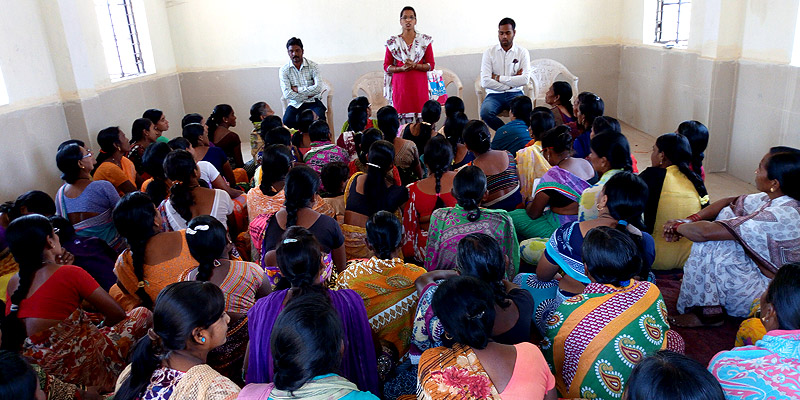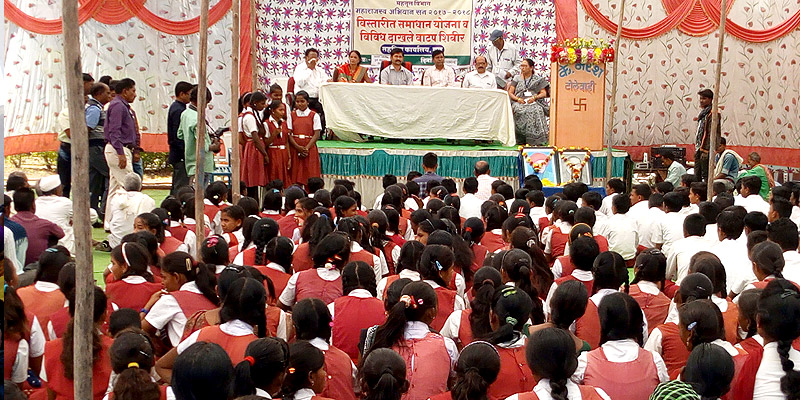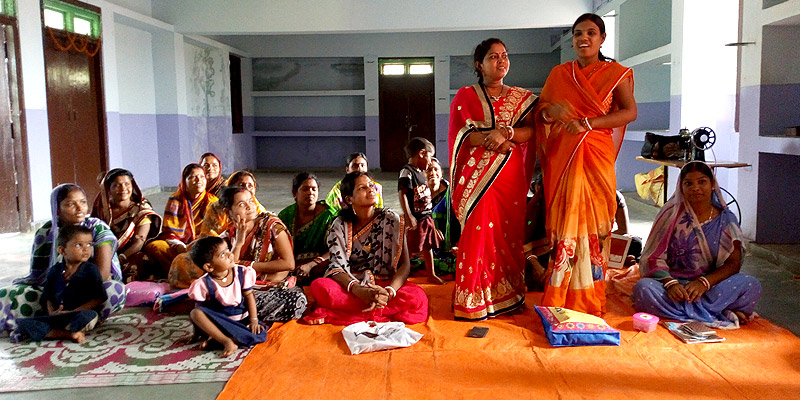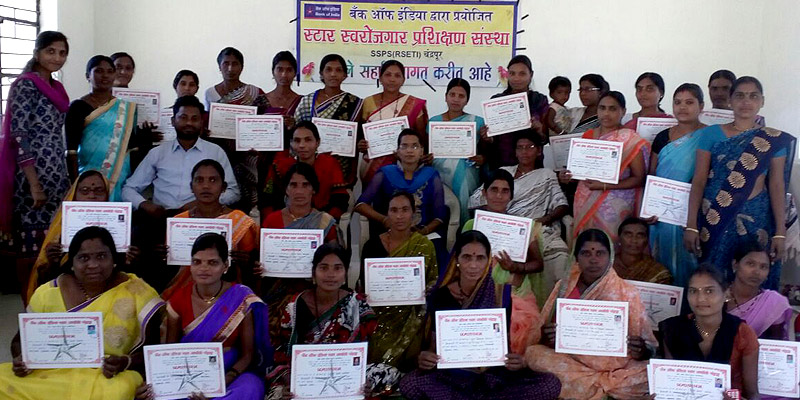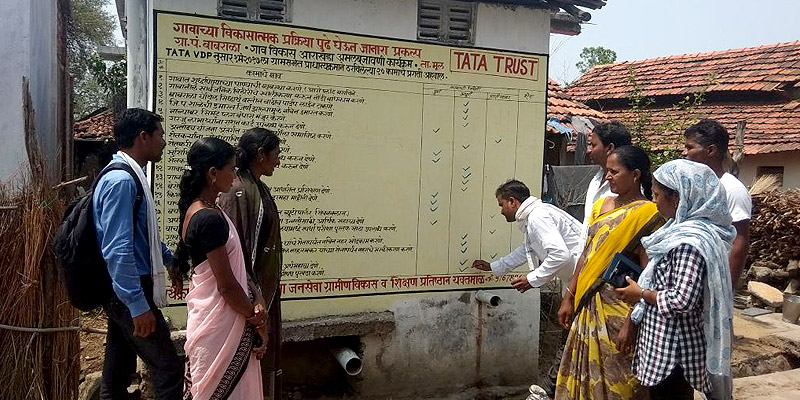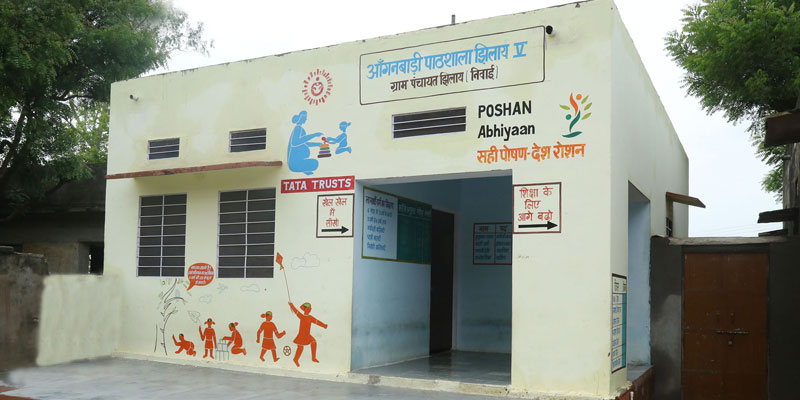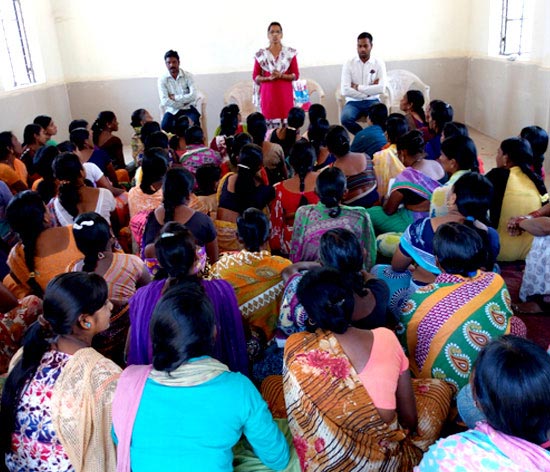
Participatory and inclusive planning is at the heart of the sustainable development conversation. Starting from the first five-year plan, the government had recognised the need to implement localised planning. However, efforts towards strengthening the local administration and PRI bodies remained disparate for long. The conceptualisation of Saansad Adarsh Gram Yojana in 2014 and actual expansion in the financial capacities of gram panchayats, under the 14th finance commission, revitalised the efforts to strengthen rural local governments at scale. In alignment with the government’s vision, Tata Trusts conceptualised their DELTA (Data, Evaluation, Learning, Technology, and Analysis) programme to support community-centric micro-planning. The idea was to empower people to take ownership of their development trajectory and to build a capacity of decision makers to catalyse data-reliant decision making.
DELTA is a technology-backed framework that supports collection and analysis of data on individual, household and institutional levels, taking the village as the base unit of planning. The Trusts undertook the first phase of DELTA process in three blocks (Mul, Pombhurna and Jiwati) of Chandrapur district in Maharashtra. An exhaustive survey was conducted to collect data that was used in the Village Development Plans (VDP) prepared for 290 villages. Using the data, the development administrators and peoples’ representatives applied the 3A (access, analysis and action) approach to prioritise need-based and time-bound development for the beneficiary communities.
Subsequently, the last mile linkage programme was rolled out to implement the VDPs and to work on identified developmental gaps in the areas of intervention. The programme focused on:
- Community empowerment and mobilisation – Community bodies like Gram Sabhas were revitalised. Women, youth and village level institutions were encouraged to continue providing support to their community.
- Enabling plan process – Unique social audit methods, using wall paintings on community buildings, were employed for greater accountability and transparency. An important part of the process was to ensure continued support of the local government officials and functionaries.
- Model panchayats – To establish an ideal bottom-up planning, the model panchayat system took the panchayat as the unit of administration and the village was treated as the base unit for planning.
- Inclusive VDP – The feasibility of the VDP and alignment with the existing plan was essential to ensure its formal uptake for all villages in the project.
Within two years of implementing the programme, a marked increase was seen in the participation numbers in Gram Sabhas and most importantly, in Mahila Sabhas. Villagers actively began raising their demands and participating in discussions, thereby acknowledging their roles in development. A total of 3,155 youth volunteers were trained to shoulder responsibilities at the community level. Around 85 percent of all individuals who applied for any essential documents received them by the end of the project cycle. This allowed them access to schemes and benefits worth more than Rs 34 crores. Additionally, benefits amounting to more than Rs 62 crores reached the people in the form of community projects such as construction of roads, provision of toilets, etc.
The last mile linkage programme was able to reach nearly 17,000 individual beneficiaries across the three blocks of Chandrapur. Of these, nearly 6,000 individuals were supported directly in getting access to basic documents and certificates, more than 1,700 individuals benefited from agriculture related schemes, 1,400 individuals received access to LPG under Ujjwala yojana and over 1,200 benefited from SBM. DELTA framework’s ability to reduce information asymmetry between communities and administration and empowering communities to prioritise their needs within a statutory plan document resulted in tremendous benefits for the people.
Another important achievement of the programme was to gain the support and build adequate capacities of decision makers within the local governments. Working with the administration and gaining their support for the project was key to ensuring its sustainability and success. Through-out the duration of the project the local government across levels, from the District Collector, Block Development Officers, right up to the Gram Sevak, played an important and active role in this process. To ensure accountability and close coordination between stakeholders, Block and District Coordination Committees were created, with the support of the District Collector of Chandrapur.
Forums like Block Coordination Committee have been very useful & effective in meeting the needs of people and bringing interdepartmental coordination and implementation of schemes easy and need based. For instance, 32 settlements with majority primitive tribal groups, in Jiwati block, were not part of any records in the block office. Last Mile Linkage Project worked with government officials in their enumeration and facilitated their access to government schemes. During the project period, 550+ convergence meetings were conducted with participation from Gram panchayat officials and 5500+ community level participants
The intervention has been successfully leveraging latest technologies for social development. It has resulted in the upskilling of local resources and has also led to multi-stakeholder partnerships. Some key factors behind the success and sustainability of the project are:
- Using communities effectively as agents of change
- Developing participatory VDPs
- Creating ownership with decision makers
- Effective use of technology for sourcing developmental needs and tracking progress against identified progress indicators
